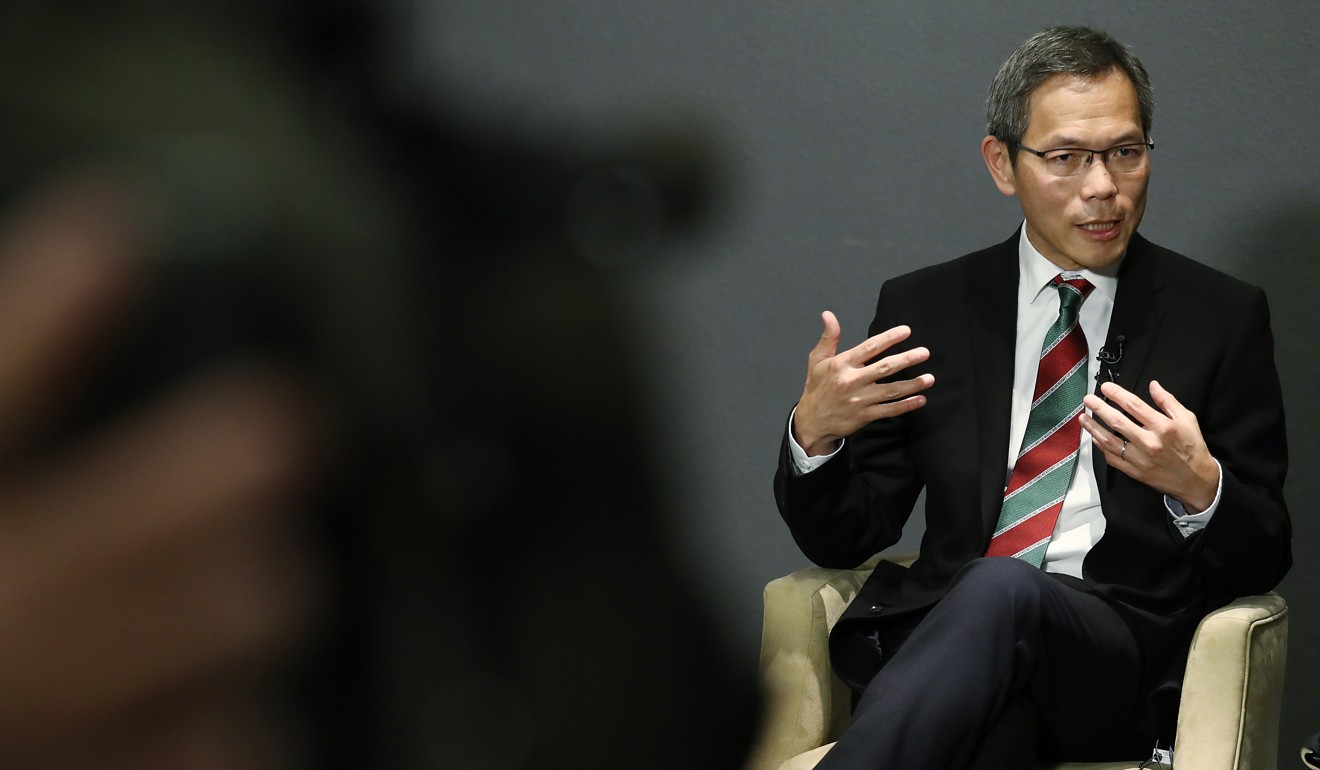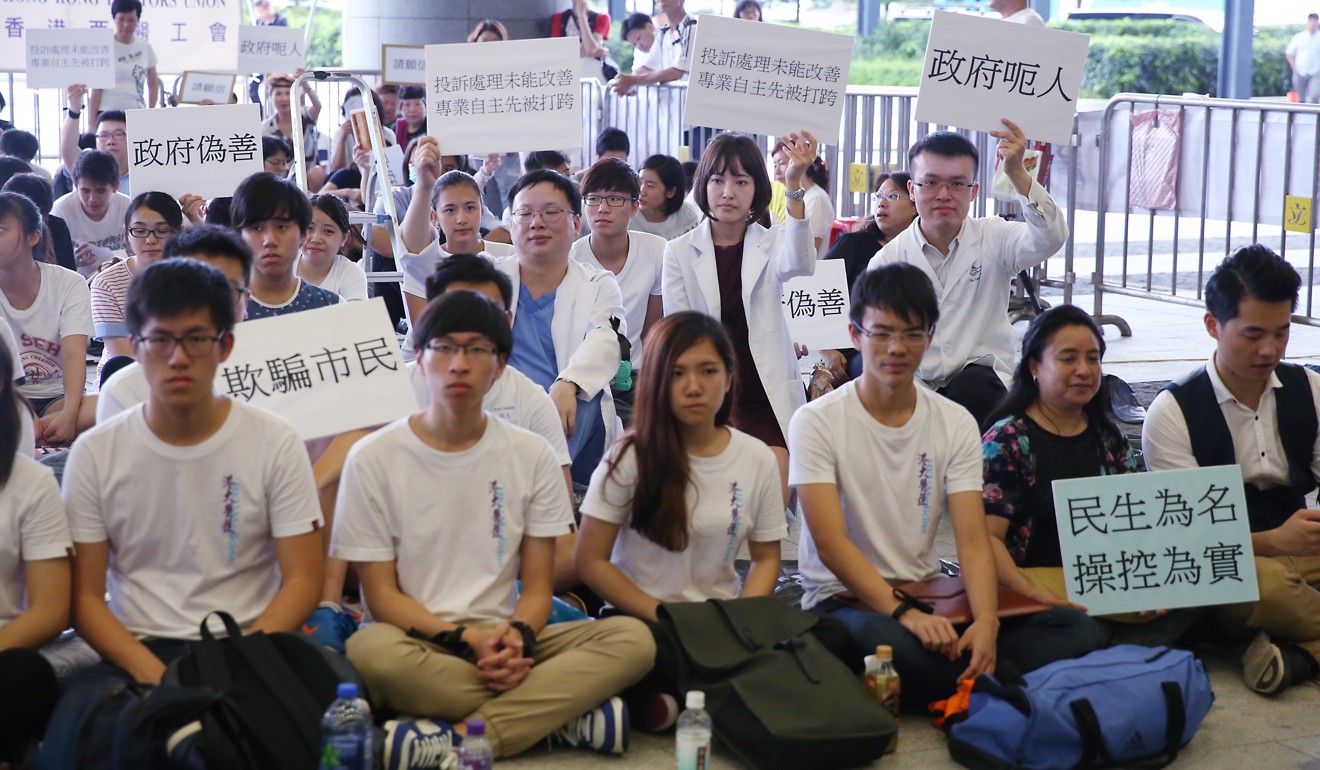
Specialists to get a say in electing two members to Hong Kong doctors' watchdog the Medical Council
The city’s Academy of Medicine addresses concerns of physicians in a bid to move along the government’s embattled reform bill for the council
Hong Kong’s medical specialists’ training institute said earlier this week it was prepared to give its more than 7,600 fellows a say in electing two representatives from its ranks to join a doctor’s watchdog, instead of only its 27-member board making the decision.
Hong Kong government seeks to reform the city’s doctors watchdog. But what is the Medical Council?
The government had last year submitted the Medical Registration Bill to the Legislative Council. It sought to rectify criticisms that the council had dragged its feet in handling complaints and was a “closed shop” that protected its own.
The council currently has 28 members – 14 appointed by the chief executive, seven elected by the city’s largest doctor’s group, the Medical Association, and seven elected by registered doctors. Two of the 14 appointed seats are reserved for the Academy of Medicine.
Among other things, the bill proposed appointing four new members who are not doctors to the council. With 32 people, it could speed up the time taken to conduct complaint hearings as this had so far taken an average of 58 months.
It also suggested converting the two appointed seats for the academy, a statutory body with regulatory powers, into elected seats, but with only board members allowed to vote.
But legislators stalled the debate through various tactics, saying their actions reflected opposition towards the bill. Doctors against the bill complained of a lack of public consultation and feared an underhand move by the government to exert greater control over the council.
Hong Kong medical reform: bitterness engendered over failed government bill may take years to overcome
Ahead of the start of the new Legco session earlier this month, Lam said the government would now reserve four seats for the academy – two would be appointed seats, while the other two would be elected positions. This would also ensure that the medical council had an equal number of elected and appointed members.
Hong Kong specialist doctor institute seeks additional seats on Medical Council
The academy’s president, Professor Lau Chak-sing, said details of the election process would be finalised by early next year. A forum would be held on November 30 to seek the views of fellows.
He said: “I guarantee that every fellow would have a chance to be involved [in choosing the two representatives].”

Asked if this meant that it would be a “one man, one vote” election system, Lau said: “In my mind, it would be the best if this could be done.”
Lau said that other possible options included getting each of the academy’s 15 constituent colleges to elect a representative to stand in an open election for the two seats. Alternatively, all fellows could submit nominations but only doctors who met certain criteria would be allowed to stand for election.
“A popular person might not be the most capable one,” Lau said.
“The two elected fellows should be able to fulfil the academy’s roles [within the Medical Council].”
For example, the academy’s current representatives on the Medical Council have had to locate suitable expert witnesses for disciplinary enquiries.

A fellow of the academy and the president of the Medical Association, Dr Gabriel Choi Kin, said he hoped all fellows would be given equal rights to stand and vote in the election.
“If a doctor has been fully admitted as a fellow at the academy, he or she should have rights of participations at all levels,” said Choi.
But he said the association had not yet discussed what it would do if it ended up disagreeing with the academy’s plan to fill the two elected seats.

